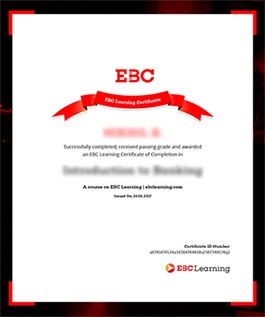EBC Webstore
Eastern Book Company
|
|
 Home > E-LEARN > Business > 2018 Home > E-LEARN > Business > 2018 |


 5
5
About this Course
| Effort | 2h 35m |
Economics relies on theory, numbers and scientific evidence. Economic evidence and analysis play a crucial role when dealing with competition law. Economic analysis therefore is the heart of competition law.
As a lawyer it is essential to have some knowledge on economic analysis when dealing with competition law. This course aims to apply economic theory to the practice of competition law.
Today the economic market has an inflow of goods and services and with that the need for competition law to protect the rights of the consumer and ensure freedom of trade has become the need of the hour. Competition Law simply put protects the rights of the consumers and enterprising entrepreneurs. It is therefore essential to study and understand the aspect of this field of law.
To understand competition law, it is even more crucial to have some knowledge of economics as competition law arises from the branch of macroeconomics. This course is aimed at simplifying economics and understand its working in competition law. This course is aimed clearing concepts from an economic perspective, which will in turn add significant value to add to your cases.
As a competition law practitioner, there will be times when it is difficult to understand economic concepts. This course is also aimed at helping you weave those economic concepts into your arguments seamlessly.
In this course you’ll learn to:
You can take this course, if:

Yugank Goyal is the Assistant Professor and Assistant Dean (Research & International Collaborations) at Jindal Global Law School. His tryst with Economics of Competition Law began while studying for his Masters at Erasmus University Rotterdam. Having worked in areas related to regulation and governance, he has gained a firm mastery over economics of competition law.
Complete this course and exercises to earn a certificate. Share it with your friends, colleagues, and employers.*
*You must Subscribe to get a certificate.

1. Introduction
2. Role of Competition Law
3. Basic Microeconomics
4. Goals of Competition Law
5. Economic Approaches - Form versus Effect
6. Market Power and its Abuse
7. Relevant Market
8. Estimating Market Power
9. Determining the Relevant Market
10. Abuse and Vertical Restraints
11. Other forms of Abuse
12. Collusions and Cartels
13. Good bye
|
|
||
|
||
|